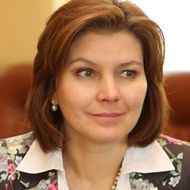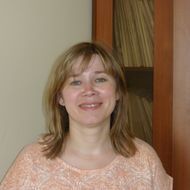Sociological Tour: a Review of Sessions for Sociologists of Religion at International Conferences in 2015
Several international conferences in sociology took place this summer. The European Sociological Association conference took place in Prague, the British Sociological Association Sociology of Religion Study Group conference was held in Great Britain, a conference on sociology of monasticism took place in Austria, and Russia hosted a conference on ‘Sociology of Religion in Late Modernity’. Ksenia Medvedeva, an HSE doctoral student, told us about her participation in these events.
This summer I decided to immerse myself deeper in the academic life of sociologists and visited four international conferences in Austria, Great Britain, Czech Republic, and Russia. I was particularly interested in religious studies, since I’m writing a thesis on modern monasteries, so I’ll provide more detail on the sessions that brought together sociologists of religion.
The European Sociological Association (ESA) conference was the biggest. It took place in Prague and attracted 3,000 participants. This year’s topic was sociological imagination, differences and inequalities of all kinds, gender, age, ethnic etc. The issues of religious differences were discussed at the sessions organized by the ESA religion sociologists’ research network. There were 15 such sessions, and about 15 to 25 participants attended each of them. At one of them, HSE Assistant Professor Lili Di Puppo spoke about the concept of ‘traditional Islam’ in the Russian context, and I presented a paper on the social representation of Christian Orthodox monasticism in contemporary Russia based on nationwide representative surveys.
The conference ‘Foundations and Futures’ was smaller, since it attracted only sociologists of religion of the British Sociological Association (BSA). The British Sociological Association Sociology of Religion Study Group is one of the oldest in Europe, and is celebrating its 40th anniversary this year. There were a lot of international participants at the conference, mainly from Nordic countries, Germany, and Italy. Three papers were dedicated to religion in the Russian context. I spoke about how Orthodox monasteries today present themselves in the public domain. Marat Shterin (King’s College London) prepared a presentation on the specifics of religious commitment in post-Soviet Russia with the use of such terms as ‘ambient faith’ and ‘bricolage’. James Richardson (King’s College London) speculated why religious minorities in Russia have to seek for justice at the European Court of Human Rights, and how it usually ends.
A more specific conference, about the sociology of monasticism, was the one I was looking forward to most. It was organized by the University of Graz and took place in Austria. Its topic was ‘Christian Monasticism from East to West. Monastic Traditions and Modernity in Europe’. I was lucky to meet like-minded people there, who, like me, study social aspects of today’s monasticism in various religious contexts. The conference summarized a European study of today’s monasticism, the results of which were published by Brill in the Annual Review of the Sociology of Religion. Incidentally, you can now find this book in the HSE Library..
Finally, In September 2015, I participated in the only Russian conference on the sociology of religion. It is called ‘Sociology of Religion in Late Modernity’ and has been held annually in Belgorod for the past 5 years. This year it attracted Russian researchers from such cities as Tyumen, Kazan, Perm, Magadan, and Ekaterinburg, as well as sociologists from Belarus, Serbia, and Montenegro, who come to Belgorod regularly. At the conference, I presented a paper on the specifics of the use of participant observation and interviews in studying monastic communities as part of the roundtable discussion on ‘Methods and Tools for the Strategy of High-quality Sociological Study of Religious Fields’.
A stipend from the British Sociological Association, which partly covered my expenses for participation in the British conference, was very helpful. The other two trips, to Graz and Belgorod, were possible thanks to the support of the HSE, for which I’m particularly grateful.
Ksenia Medvedeva, doctoral student at the Faculty of Social Sciences School of Sociology


